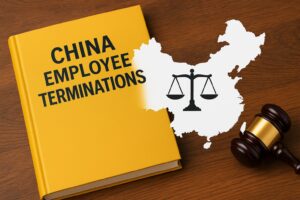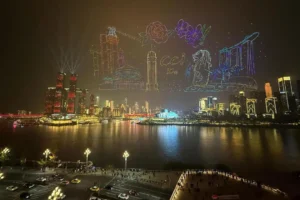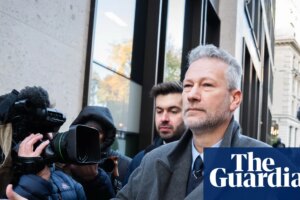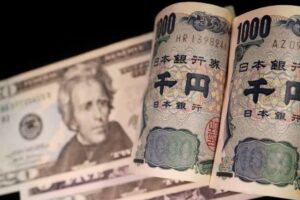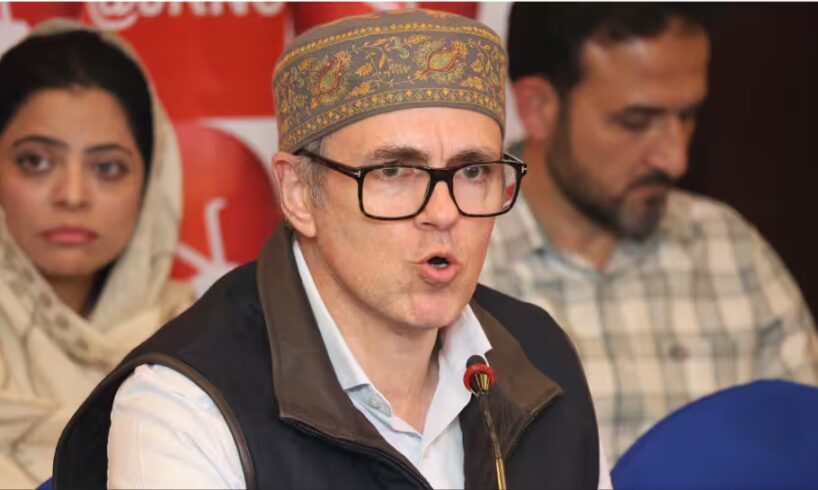
On the sixth anniversary of Jammu and Kashmir’s reorganisation as a Union Territory following the abrogation of Article 370, a public confrontation erupted between Lieutenant Governor Manoj Sinha and Chief Minister Omar Abdullah, revealing widening cracks in the region’s power-sharing arrangement.
During the Union Territory Foundation Day celebrations, LG Manoj Sinha hailed Prime Minister Narendra Modi’s leadership for J&K’s “integration and development,” invoking Sardar Patel and Syama Prasad Mookerjee as guiding inspirations.
Pivoting from praise to pointed critique, Sinha accused the elected administration of using the statehood demand as an excuse for governance failures.
Add Zee News as a Preferred Source
“Some people have some problems. When the Assembly elections were held, it was clear that they were for the UT Assembly. The elected government cannot make the excuse that work cannot be done till statehood is restored,” Sinha said.
His remarks were perceived as a direct rebuke of the newly elected National Conference–Congress alliance government led by Omar Abdullah, which has consistently pressed for the restoration of full statehood.
The response from the Abdullahs was swift and sharp. At Hazratbal Shrine later in the day, Farooq Abdullah, the former Chief Minister and National Conference patriarch, accused Sinha of “lying to the public”, alleging that all major decisions in the Union Territory were controlled by the LG’s office.
That evening, at a rally in Srinagar’s Eidgah, Chief Minister Omar Abdullah mounted a detailed rebuttal, defending his administration’s record and turning the debate towards accountability and the region’s fragile security environment.
“We are told to work and not make excuses. We do not make excuses. We are performing despite hurdles created in our way,” Omar said. “Today, the destruction that we are seeing, unemployment, a fall in GST earnings, empty hotels, taxis and houseboats, and a decline in handicraft sales, why? Because there was an attack in Pahalgam. Who is responsible for security here? It is not in my hands. Had it been, we would have never allowed such a situation in J&K.”
Referring to his previous tenure as Chief Minister, Omar added, “In my six-year tenure, not a single attack on tourists took place. Twenty-six of our guests were killed in Pahalgam, and we are told to just work. We know how to work, you do your job, and we will do ours.”
Turning to the statehood issue, Omar Abdullah reiterated that restoring full statehood was a democratic imperative and a promise repeatedly made by the Centre before both Parliament and the Supreme Court.
“The LG should at least speak about the promise made to the people of J&K in the Supreme Court and Parliament. Why are they so afraid of statehood? Why don’t they want to let go of power?” he asked.
Echoing public frustration over vague timelines, Omar pressed for clarity, “We are told that statehood will be restored at the appropriate time. Alright, but tell us how long we should wait? What is the scale to assess the right time? As Chief Minister, I should at least know what milestone we need to reach to get it back.”
He reminded that nearly all 90 MLAs elected in the 2024 Assembly polls had campaigned on the restoration of statehood, underlining it as a matter of democratic trust.
The exchange underscored the fragile dual-power structure that has defined Jammu and Kashmir since the 2019 reorganisation, with the elected government often clashing with the LG’s office over jurisdiction and authority.
While Omar Abdullah leads the Council of Ministers, key domains, including police, finance, and land, remain under the control of the Lieutenant Governor.
In December 2023, the Supreme Court directed the Centre to restore statehood “at the earliest” following the assembly elections. Though the polls were held in September–October 2024, bringing the National Conference–Congress alliance to power, Union Home Minister Amit Shah has since reiterated that restoration would happen only “at an appropriate time.”
The delay has deepened political frustration, particularly after the April 22, 2025, Pahalgam terror attack, which killed 26 tourists and devastated Jammu and Kashmir’s tourism sector, a vital contributor accounting for over 8% of the region’s GDP.
The tragedy, coupled with economic stagnation and governance tension, has turned the statehood debate into both a political and emotional flashpoint.
In today’s episode of DNA, Rahul Sinha, Managing Editor of Zee News, presented an in-depth analysis of the brewing conflict between LG Manoj Sinha and Chief Minister Omar Abdullah, dissecting how the statehood impasse, security concerns, and constitutional ambiguity continue to define Jammu and Kashmir’s complex political landscape.
